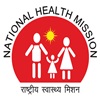- Immunization Programme is one of the key interventions for protection of children from life threatening conditions, which are preventable. It is one of the largest programme in the world and a major public health intervention in the country.
- Immunization Programme in India was introduced in 1978 as Expanded Programme of Immunization (EPI).
- UIP became a part of Child Survival and Safe Motherhood (CSSM) Programme in 1992. Since 1997, immunization activities have been an important component of National Reproductive and Child Health Programme and are currently one of the key areas under National Health Mission (NHM) since 2005.
- Under the Universal Immunization Programme, Government of India is providing vaccination to prevent vaccine preventable diseases i.e. BCG, OPV, Hep. B, Pentavalent, RVV, fIPV, MR, DPT,JE, TD,PCV.
Activities done under Routine Immunization
- ANM at sub centre and APHC/ PHC/CHC/ District Hospital vaccinate children under immunization programme.
- Vaccination session organized by ANM on sub centre and in District Hospital on every Wednesday.
- Outreach sessions (VHND) for vaccination are organized by ANM on every Saturday. Sessions sites are either Anganwadi centre / Panchayat Bhawan/ Schools.
- Due to Covid-19 pandemic, the entire country faced lockdown period and during this period many states had stopped the immunization activities. It had great impact on immunization coverage. In these states, many children were left out or drop out of the immunization. But
- Uttarakhand state took a serious note on children’s immunization and run immunization activities in a continuous manner even in lockdown period to achieve 100% immunization coverage.
- State has also initiated supplementary immunization weeks (SIWs), three IMI 4.0 rounds in four districts Bageshwar, Champawat, Haridwar &Tehri and two SNIDs & one NID rounds to achieve 100% immunization coverage.

